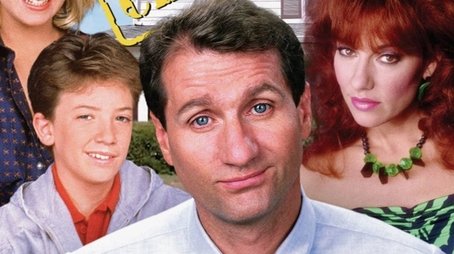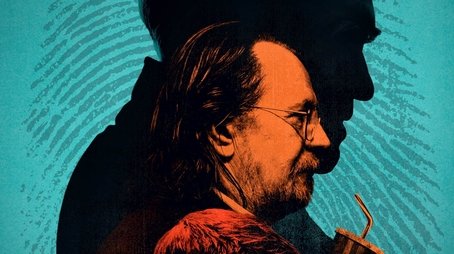
Ask Your Own Question
What is the plot?
In the pilot episode of "Married... with Children," we are introduced to Al Bundy, a disgruntled shoe salesman, who is stuck in a mundane life filled with dissatisfaction. The scene opens in the Bundy living room, where Al is lounging on the couch, watching television. His wife, Peggy, enters the room, showcasing her lack of interest in housework and her obsession with shopping and eating. Al expresses his frustration with his life, particularly his job and his marriage, which he feels has become a burden.
As the episode progresses, we meet their children, Kelly and Bud. Kelly is portrayed as a dim-witted teenager obsessed with her looks, while Bud is a scheming young man trying to navigate his own romantic interests. The family dynamic is established as Al often berates his family, particularly Peggy, for their laziness and lack of ambition. Peggy, in turn, is dismissive of Al's complaints, focusing instead on her own desires.
The plot thickens when Al is confronted with the reality of his financial situation. He learns that he has to pay for a new pair of shoes for a customer who is unhappy with their purchase. This moment highlights Al's struggles as a salesman and his resentment towards his job, which he feels is unappreciated. He fantasizes about a life where he is free from his responsibilities, but these dreams are quickly shattered by the demands of his family.
In a pivotal scene, Al decides to take a stand against his family's expectations. He attempts to assert his authority by declaring that he will no longer be the one to provide for them. However, his declaration is met with indifference from Peggy and the kids, who continue to prioritize their own wants over Al's frustrations. This moment encapsulates the ongoing theme of Al's futile attempts to gain respect and recognition within his own household.
As the episode reaches its climax, Al's frustration boils over during a family dinner. He expresses his disdain for the way his family treats him, leading to a heated argument. Peggy and the kids retaliate with their own grievances, showcasing the dysfunctional nature of their relationships. The dinner scene is chaotic, filled with comedic exchanges that highlight the absurdity of their situation.
In the final moments of the episode, Al is left alone in the living room, reflecting on his life. He realizes that despite his complaints, he is trapped in a cycle of mediocrity and familial obligations. The episode concludes with Al resigned to his fate, humorously accepting that he will continue to endure the trials of being a husband and father, setting the tone for the series as a whole.
What is the ending?
Is there a post-credit scene?
What are the main conflicts between Al and Peg Bundy throughout the series?
The main conflicts between Al and Peg Bundy often revolve around their differing views on money, responsibilities, and personal desires. Al, a shoe salesman, is perpetually frustrated by his financial struggles and the burden of supporting his family, while Peg is often depicted as a lazy housewife who spends money frivolously and desires a more luxurious lifestyle. This dynamic leads to frequent arguments, with Al feeling trapped in his role as the provider and Peg feeling unappreciated and stifled in her domestic life.
How does the character of Steve Rhoades impact the Bundy family dynamics?
Steve Rhoades, Marcy's husband, serves as a foil to Al Bundy. His character often highlights Al's shortcomings as a husband and father. Steve's attempts to be a responsible and caring husband contrast sharply with Al's cynical and often neglectful demeanor. This creates tension, especially in the interactions between Steve and Al, where Al's disdain for Steve's 'nice guy' persona often leads to comedic situations. Steve's presence also complicates Marcy's relationship with Al, as she often tries to encourage her husband to adopt more of Steve's positive traits.
What role does the character of Marcy D'Arcy play in the series?
Marcy D'Arcy, the Bundys' neighbor, is a pivotal character who often serves as a source of conflict and comedic relief. Her character is portrayed as a feminist who frequently clashes with Al's misogynistic views. Marcy's attempts to assert her independence and challenge traditional gender roles often lead to humorous confrontations with Al, who sees her as a threat to his male authority. Additionally, her relationship with Steve provides a contrasting dynamic to the Bundy family, showcasing the struggles of marriage and the complexities of suburban life.
What are some of the most memorable schemes or plans that Al Bundy devises throughout the series?
Al Bundy often devises schemes that reflect his desperation and frustration with his life. One memorable scheme involves him trying to win a contest to escape his mundane existence, showcasing his desire for a better life. Another notable plan is when he attempts to sell shoes online, only to face numerous comedic obstacles that highlight his ineptitude with technology. These schemes often backfire, leading to humorous situations that emphasize Al's perpetual bad luck and the futility of his aspirations.
How does the character of Kelly Bundy evolve throughout the series?
Kelly Bundy, the Bundy's daughter, evolves from a stereotypical 'dumb blonde' character into a more complex figure as the series progresses. Initially portrayed as naive and self-absorbed, her character begins to show moments of unexpected depth and resilience. Throughout the series, Kelly's interactions with her family and friends reveal her struggles with self-identity and societal expectations. Despite her often clueless demeanor, she occasionally demonstrates surprising intelligence and resourcefulness, particularly in her relationships and attempts to navigate the challenges of young adulthood.











